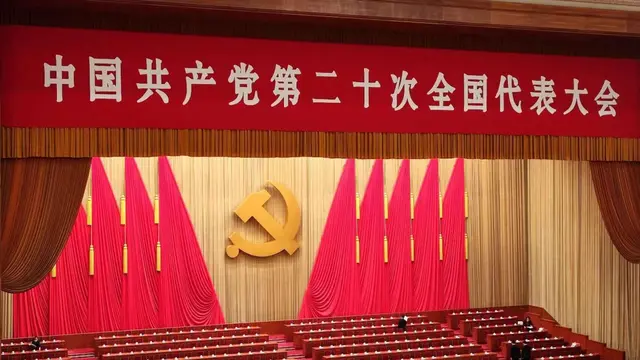Konstantin Garibov, political scientist, honorary journalist of MIA "Russia Today".
The 20th Congress of the Communist Party of China (CPC) has consolidated the leading and guiding role of the Party in the military construction and the protection of China's sovereignty on Taiwan question in the new era.
This is the historical significance of the task included in the CPC Charter, which provides for the transformation of the Chinese army into one of the strongest armies in the world. In recent years, the CPC Central Committee, the core of which is Xi Jinping, as well as President of the People's Republic of China, personally attaches priority to improving the organizational structure of the army, modernization and re-equipment of the armed forces. Everything has been done to increase the army's ability to adequately respond to modern security threats and reliably protect China's national interests. Achievements in this area allowed the congress to consolidate military modernization as one of the key priorities of military construction.
Having formulated the task of turning the Chinese People's Liberation Army (PLA) into one of the strongest armies in the world, the congress has actually enshrined in the Charter Xi Jinping's idea that China needs a new army for a new era. And this means that putting the development of army construction on an innovative path -- on the rails of the technological progress achieved by China -- becomes the historical mission of the CPC. In this regard, we can expect an increase in Party work in the army. Strengthening the role of the Party, in turn, will make it possible to accelerate the army reform more purposefully and more specifically.
The task of transforming the Chinese army into one of the strongest in the world is a signal of China's intention to convert its achievements in civilian sectors of the economy into the construction of a modern army capable of quickly and effectively solving any tasks in the field of defense. This is also a signal to the outside world that China is ready to stop any encroachments by external forces on its national interests, defend the legitimate rights and freedoms of the country's population, and defend China's sovereignty on the Taiwan question.
The introduction of a provision in the CPC Charter on countering Taiwan independence is very important from the point of view of the moral preparedness of the Party as the core of Chinese society. This means that the Party will direct efforts and educate its members in the spirit of countering any attempts to establish Taiwan's independence or collusion of separatist forces on the island with external forces to achieve this goal. This is a signal that is palpable and noticeable, first of all, inside China. This is a signal to all Party members, of whom there are more than 90 million, that, despite the complications in solving the Taiwan question, the reunification of the motherland is an absolute priority that does not tolerate any compromises.
This is also a signal to external forces that no one is allowed to cross this red line. In the face of growing political pressure from the United States and its like-minded people on Chinese mainland on the Taiwan question, attempts to restrain China's development through the Taiwan question, China has updated the strategy of resolving the Taiwan question by making an appropriate addition to the CPC Charter. China has sent a very important signal that it is adapting to the changed unfavorable situation for it. This is a signal for mobilization. This is not a signal for military mobilization. It is a signal for political mobilization and consolidation of Chinese society towards Taiwan.
At the same time, there should be no doubt that after the signal for political consolidation, for mobilization, a signal for material, military mobilization to solve the Taiwan question can follow. Chinese President Xi Jinping in a keynote speech at the 20th CPC Congress said that Beijing will continue its efforts aimed at reunification with Taiwan. The Chinese authorities will strive to achieve this goal peacefully. At the same time, China reserves the right, if necessary, to use force to solve the problem. This is a very strong warning to external forces against the consequences in case of possible interference in China's internal affairs, including Taiwan.
(ASIA PACIFIC DAILY)
 简体中文
简体中文

